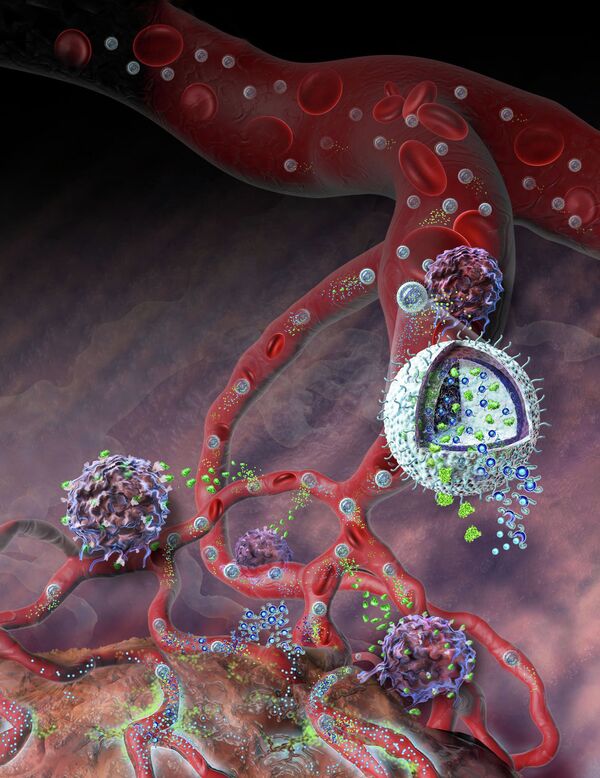WASHINGTON, March 27 (RIA Novositi) - Researchers at the Stanford University School of Medicine in California have discovered a single drug that has killed or shrunk every kind of cancer tumor it has been used against.
The drug blocks a protein called CD47, which cancer cells produce in large amounts and thereby trick the body’s immune system into not destroying the cancer cells. Scientists have created an antibody that blocks CD47, prompting the immune system to attack the cancer cells.
“We showed that even after the tumor had taken hold, the antibody can either cure the tumor or slow its growth and prevent metastasis,” biologist Irving Weissman of the Stanford University School of Medicine was quoted by Science Magazine as saying.
The drug was effective against several kinds of cancer tumors that were transplanted into mice, including human breast, ovary, colon, bladder, brain, liver and prostate tumors. In every case the antibody was able to get the mice’s immune system to kill the cancer cells.
“It is the first antibody treatment shown to be broadly effective against a variety of human solid tumors, and the dramatic response … has the investigators eager to begin phase-1 and -2 human clinical trials within the next two years,” the Stanford School of Medicine reported on its website.
The research was published Tuesday on the website of the Proceedings of the National Academy of Sciences.
A decade ago Weissman discovered that leukemia cells produce higher levels of CD47 than healthy cells, Science Magazine reported. And in the last several years, Weissman and his team of researchers discovered that blocking CD47 with an antibody cured some cases of lymphoma and leukemia in mice by stimulating the immune system to see the cancer cells as invaders.
“What we’ve shown is that CD47 isn’t just important on leukemias and lymphomas,” Weissman said. “It’s on every single human primary tumor that we tested.”
Weissman’s research team recently received a $20 million grant from the California Institute for Regenerative Medicine for human studies, according to Science Magazine.


